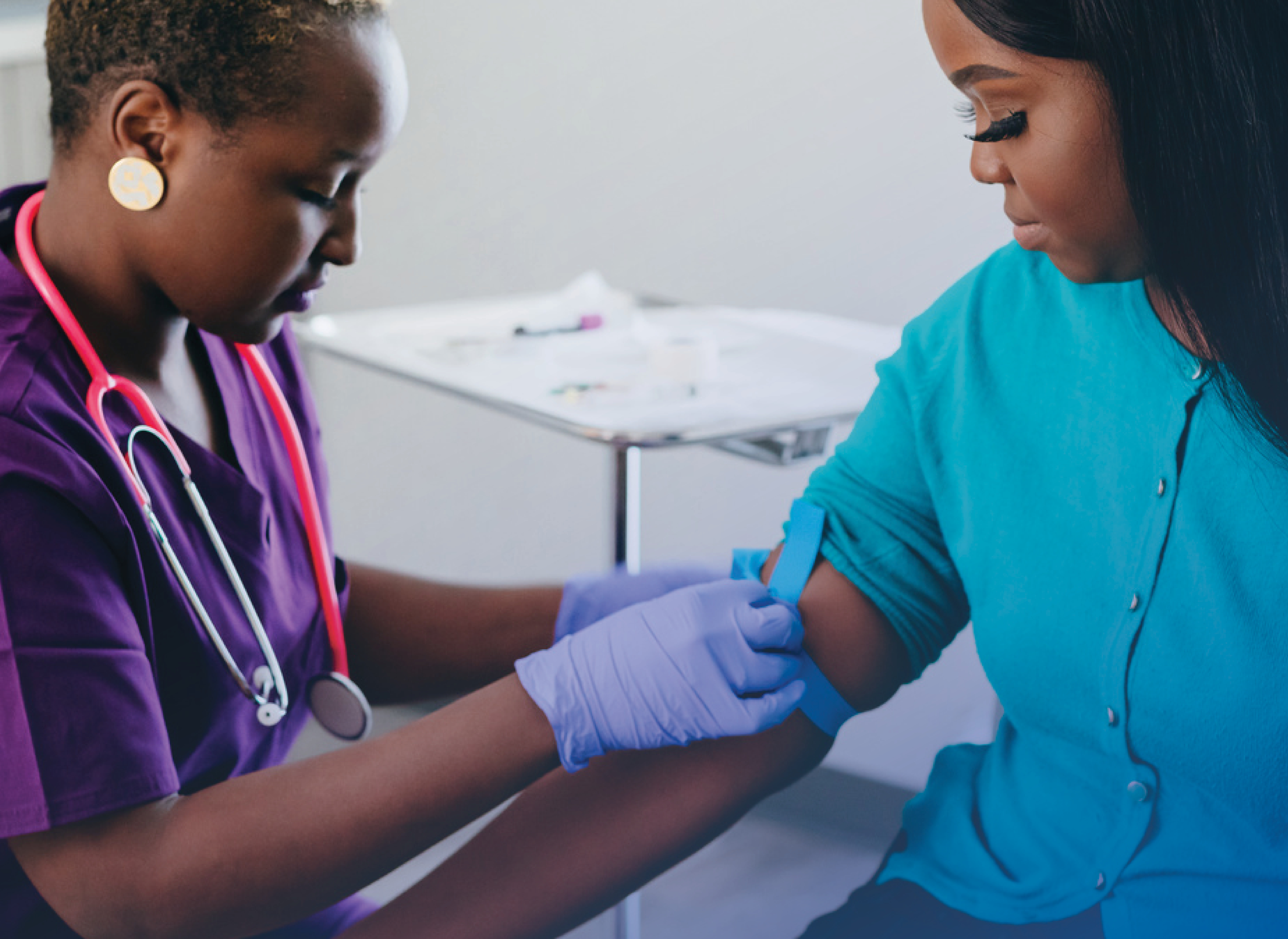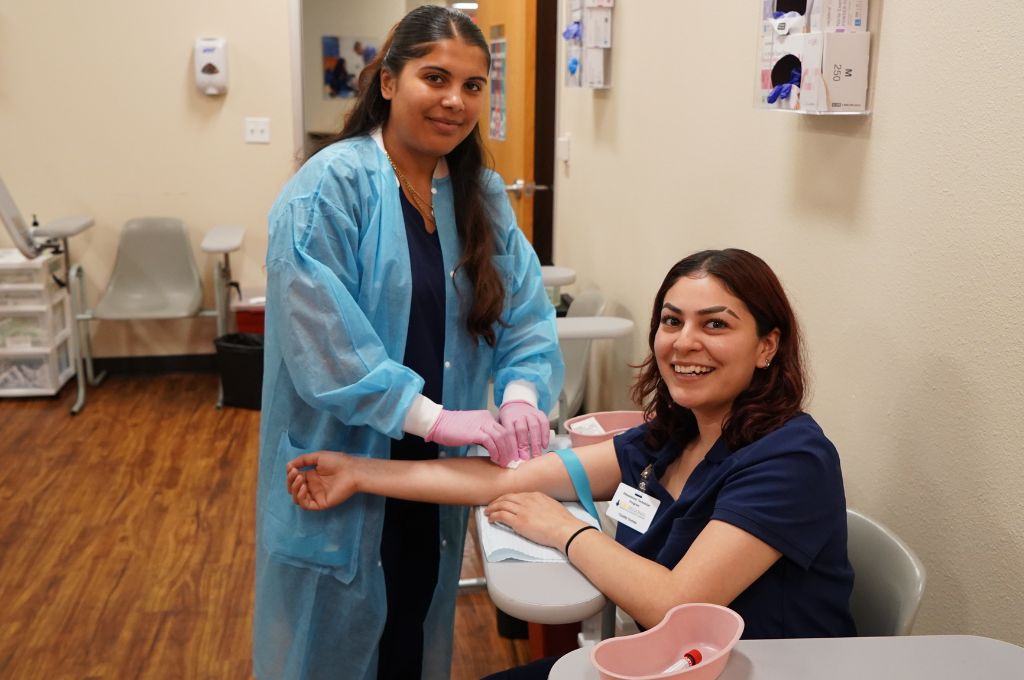Phlebotomy Training Course Costs Explained: Ways to Save
Phlebotomy Training Course Costs Explained: Ways to Save
Blog Article
The Course to Certification: Comprehending the Phlebotomy Educating Training Course Trip and Its Importance
As you think about the course to qualification in phlebotomy, it is necessary to comprehend the duty you'll play in healthcare. Your training will cover vital abilities, from blood collection strategies to patient communication. Each part of the program prepares you for the challenges ahead. What exactly does the journey entail, and why is certification so essential for your future profession? Let's explore these questions even more.

The Duty of Phlebotomists in Health Care
Phlebotomists play a vital role in the medical care system, serving as the essential web link between people and essential analysis testing. You'll do blood draws, ensuring examples are collected properly and safely. Your knowledge helps in detecting medical problems, keeping an eye on wellness, and directing therapy decisions.
In your day-to-day interactions, you'll require to establish trust fund with clients, making them really feel comfortable throughout what might be a demanding experience. You're responsible for labeling and taking care of samples meticulously to avoid contamination or mistakes, which could impact examination results.
Yet, you'll frequently function along with physicians and registered nurses, communicating important information regarding people' conditions. Your function is basic in maintaining the process in medical care settings, making sure prompt and accurate results. By grasping your abilities, you add meaningfully to client treatment, making you an essential component of the clinical group. Welcoming this responsibility is essential to your success as a phlebotomist.
Summary of Phlebotomy Training Programs
When checking out phlebotomy training programs, you'll discover different types created to fit various routines and discovering styles. Each program assists you create crucial abilities like blood collection and person communication. Recognizing these choices is crucial to selecting the ideal path for your profession.
Types of Training Programs
Numerous types of training programs are readily available for those looking to end up being competent in phlebotomy. In addition, some medical facilities and facilities provide on-the-job training programs, supplying practical experience while you find out. Whatever path you select, each program intends to equip you with the essential skills for an effective phlebotomy job.

Secret Abilities Created
Mastering phlebotomy needs a collection of vital abilities that are developed through complete training programs. You'll find out technological abilities like correct vein selection, needle insertion, and blood collection methods. These hands-on methods ensure you can execute treatments securely and successfully. Furthermore, interaction skills are fundamental; you'll need to communicate with individuals, describe treatments, and placed them secure. Recognizing makeup and physiology is critical, too, as it helps you locate veins and understand the body's response to blood draws. Finally, you'll gain knowledge of safety methods and infection control, ensuring you keep a clean and sterile setting. Each of these skills is essential for your success as a qualified phlebotomist, making you a beneficial possession in any type of healthcare setup.
Key Elements of a Phlebotomy Course
In a phlebotomy program, you'll concentrate on necessary topics that prepared for your future profession. You'll take part in hands-on training that enables you to use what you've found out in real-world settings. Both the curriculum and useful experience are essential for your success as a phlebotomist.
Curriculum Introduction
While pursuing a phlebotomy training program, you'll encounter a core curriculum made to furnish you with basic skills and understanding. Phlebotomy school. This curriculum usually consists of anatomy and physiology, concentrating on the circulatory system and recognizing blood components. You'll likewise find out about different kinds of blood collection approaches, including venipuncture and capillary leak strategies
Additionally, infection control and security protocols are important elements, guaranteeing you understand just how to maintain a sterile atmosphere. You'll examine patient communication, stressing communication and empathy, which are vital for reducing patient anxiety. Lastly, honest and lawful factors to consider will certainly be resolved, preparing you for real-world responsibilities. This fundamental understanding will certainly allow you to stand out as a phlebotomist and give top quality treatment in professional setups.
Hands-On Training Experience
Getting hands-on experience is an important component of your phlebotomy training program. This sensible training permits you to use what you have actually discovered in a real-world setup, improving your skills and confidence. You'll practice venipuncture strategies, learn how to handle various kinds of samplings, and get acquainted with the equipment made use of in the area. Under the support of seasoned teachers, you'll improve your skills, ensuring you're gotten ready for any type of situation you might face.
In addition, you'll get the opportunity to communicate with patients, which is crucial for establishing your interaction skills. This mix of technical effectiveness and interpersonal abilities is critical for your success as a qualified phlebotomist. Ultimately, hands-on training is where theory fulfills method, strengthening your knowledge and preparedness for certification.
Accreditation and Licensing Requirements
Before you can begin your career in phlebotomy, it is crucial to understand the accreditation and licensing needs that vary by state. A lot of states call for phlebotomists to hold a certification from an acknowledged company, such as the National Phlebotomy Association or the American Culture for Professional Pathology. These certifications normally entail passing an exam that checks your expertise and skills in the field.
In enhancement to qualification, some states have particular licensing demands. You might need to finish a particular number of hours in professional technique, submit proof of training, or go through a history check. It is very important to investigate your state's regulations to make certain you fulfill all necessary requirements.
Remaining educated about these requirements not only assists you safeguard a placement but also enhances your reputation as a professional. By meeting these needs, you'll be well on your way to a successful profession in phlebotomy.
Hands-On Training and Practical Experience
Hands-on training and sensible experience are essential elements of your phlebotomy education, as they enable you to use theoretical understanding in real-world scenarios. Throughout your training, you'll participate in monitored venipuncture, find out correct strategies, and come to be knowledgeable about numerous blood collection tools. This straight participation is essential for constructing your self-confidence and sharpening your abilities.
You'll function carefully with seasoned professionals who can assist you through the nuances of patient interaction and sample handling. Each practice not only reinforces your understanding yet additionally prepares you for the busy setting of healthcare setups.
Furthermore, several programs include medical turnings, permitting you to experience varied setups, from hospitals to outpatient facilities. This exposure aids you adjust to different obstacles and client demands, ensuring you're well-prepared for your future role. Welcome these chances, as they're important to becoming a skilled and thoughtful phlebotomist.
Difficulties Faced Throughout Training
While getting hands-on experience is important, it's vital to acknowledge the obstacles that can occur throughout your phlebotomy training. Furthermore, mastering the skills needed for blood draws takes practice; you may battle with technique at first.
Time monitoring can also be a difficulty, as balancing concept, practical sessions, and individual dedications can feel daunting. You may deal with varying finding out paces amongst your peers, resulting in feelings of insecurity if you believe you're falling back. Adapting to the different characters of teachers can be tough, as each might have a distinct teaching style.
Acknowledging these barriers early on can prepare you for success and help you develop durability throughout your training trip.
Job Opportunities After Certification
As you get experience, you might even take into consideration focusing on locations like pediatric or geriatric phlebotomy, accommodating particular client requirements. Some phlebotomists choose to advance their jobs by coming to be research laboratory professionals or seeking further education in health care fields.
In addition, your accreditation can result in duties in training or overseeing brand-new phlebotomists, allowing you to share your expertise. With the health care industry continually expanding, your skills will certainly constantly be in demand, leading the way for a stable and meeting profession. Welcome the chances waiting for you!
Regularly Asked Concerns
What Is the Regular Duration of a Phlebotomy Educating Course?
Phlebotomy training programs generally last around 4 to eight weeks. You'll participate in hands-on practice, class guideline, and online discovering. Finishing this training prepares you for certification and a satisfying career in health care.
Are Online Phlebotomy Courses Available?
Yes, online phlebotomy courses are offered. They supply flexibility and benefit, permitting you to research at your very own rate. Just confirm the program is approved to fulfill qualification requirements and gain useful abilities for your occupation.
Just How Much Does Phlebotomy Training Usually Price?
Phlebotomy training commonly sets you back in between $700 and $2,500, depending on the program and location. You ought to think about aspects like program size, consisted of products, and hands-on experience when picking the appropriate training for you.
What Prevail Prerequisites for Phlebotomy Training?
Common prerequisites for phlebotomy training often include a high institution diploma or GED, booster shots, and a history check. Some programs might additionally call for fundamental healthcare expertise or accreditations, ensuring you're planned for hands-on training.
Can I Work While Finishing My Phlebotomy Training?
Yes, you can work while finishing your phlebotomy training. Numerous pupils balance work with their research studies, but make sure to manage your time properly to ensure you fulfill both work and training dedications effectively.
Report this page